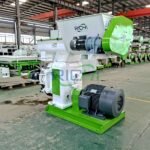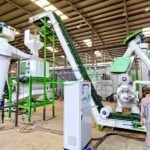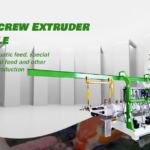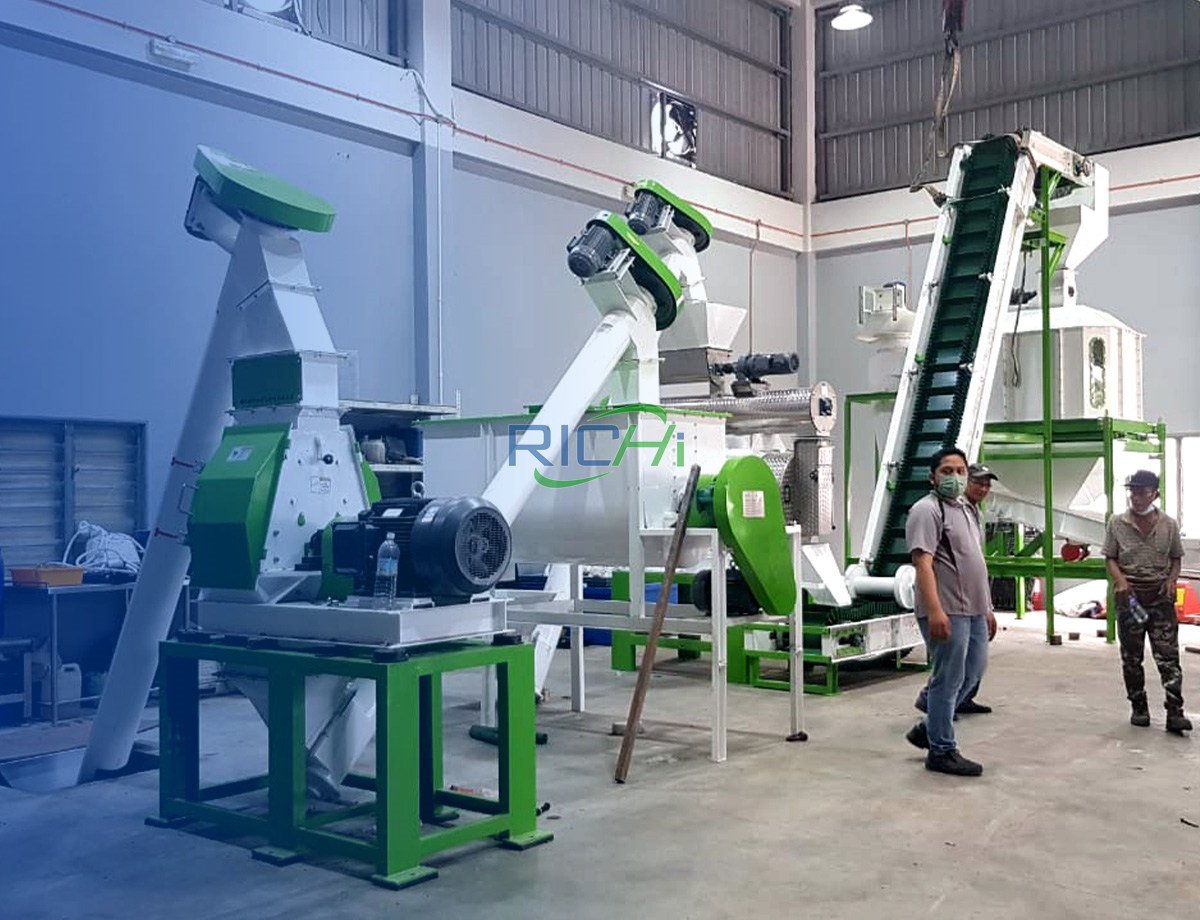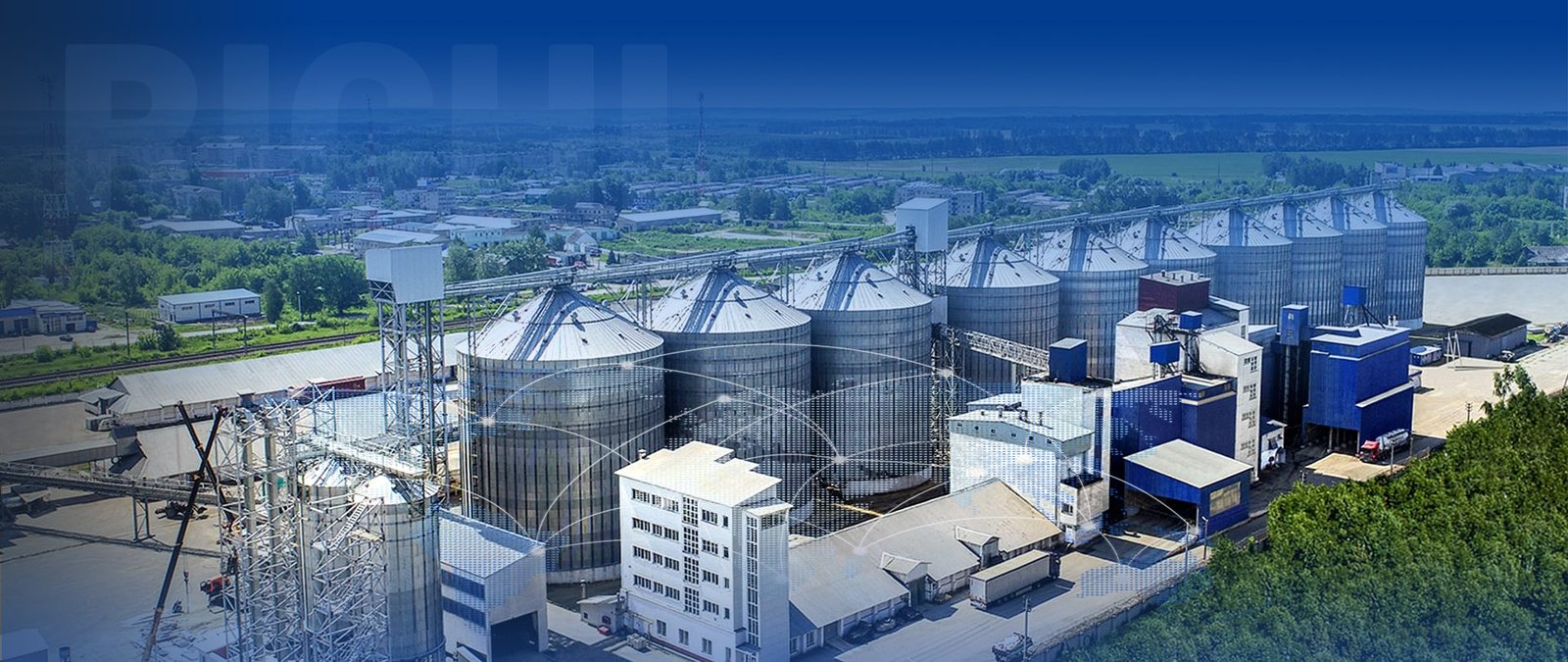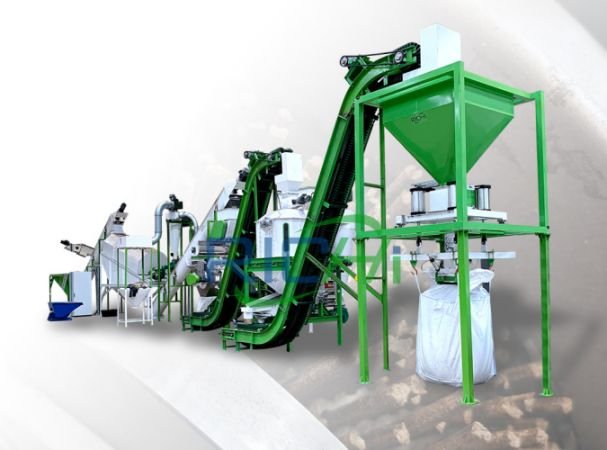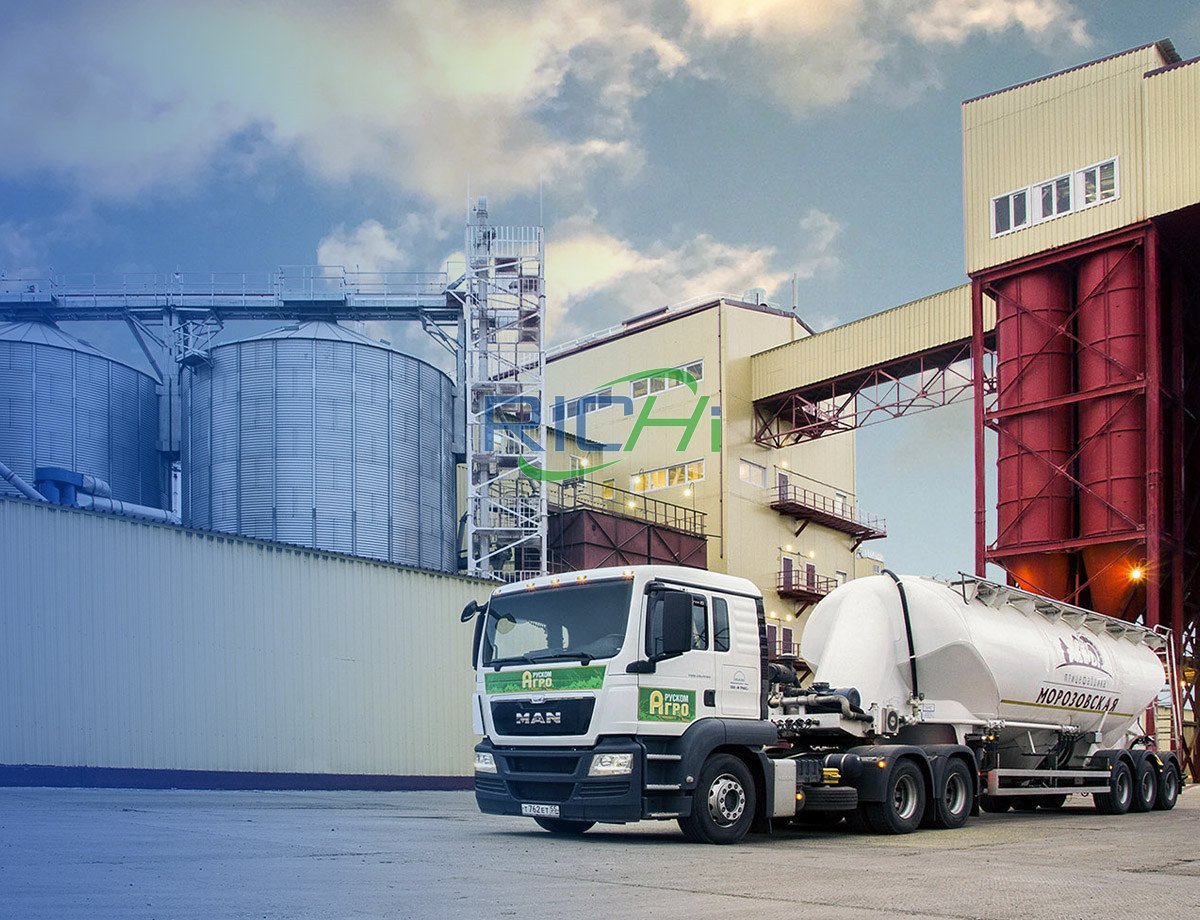A 3-4 t/h animal feed processing machine is designed to efficiently convert raw materials into high-quality feed pellets for livestock and poultry. While the overall production process may seem straightforward, several critical steps require special attention to ensure optimal performance, product quality, and safety. This article outlines the key stages in the production process of a 3-4 t/h animal feed processing machine that demand careful consideration.
1. Raw Material Preparation
The first step in the production process is preparing raw materials, which involves cleaning, grinding, and mixing.
- Cleaning: It is essential to ensure that raw materials are free from foreign objects, debris, and contaminants. Proper cleaning prevents damage to the machine and ensures the safety and quality of the final product.
- Grinding: Typically conducted using a hammer mill, the grinding process reduces the particle size of raw materials to enhance their digestibility and binding properties. Proper adjustment and maintenance of the hammer mill are crucial for achieving the desired particle size distribution.
- Mixing: Thorough and consistent mixing of the ground materials with additives, vitamins, and minerals is essential for creating a homogeneous feed mixture. Inadequate mixing can lead to nutritional imbalances and inconsistent pellet quality.
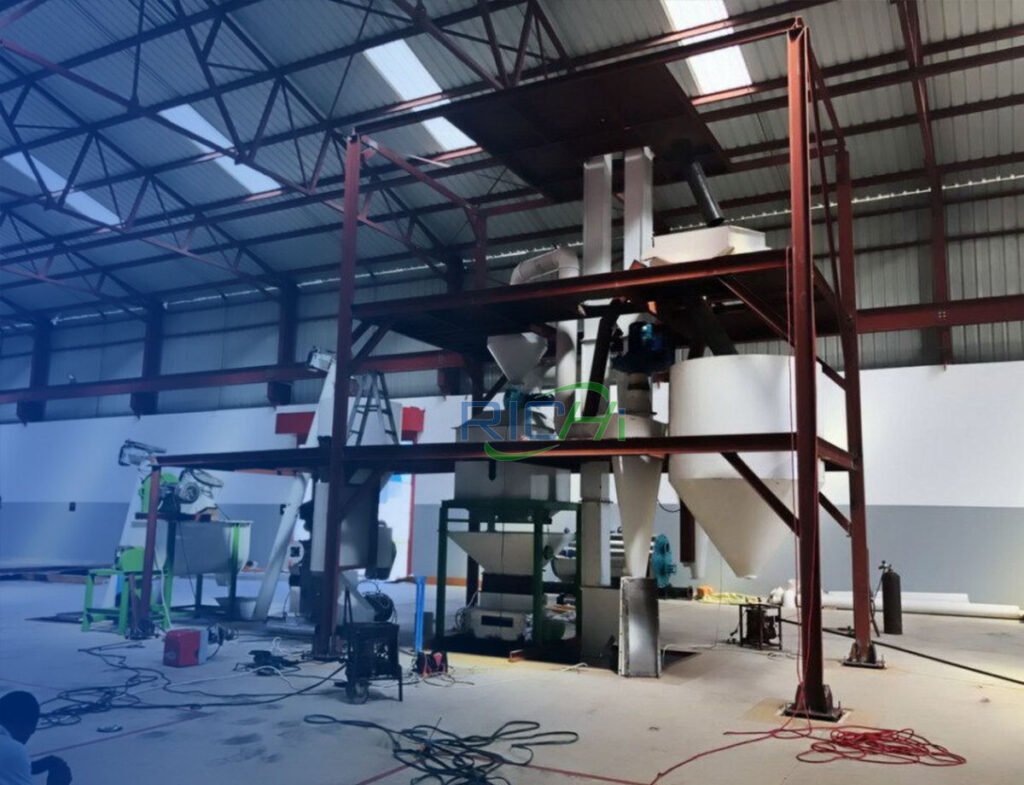
2. Conditioning
Conditioning is a critical step that involves adding moisture and heat to the feed mixture before pelleting.
- Moisture Control: Precise control of moisture content is vital for achieving optimal pellet quality. Insufficient moisture can lead to poor pellet durability, while excessive moisture may cause sticking and buildup in the pellet mill.
- Temperature Regulation: The conditioning process typically involves adding steam to raise the temperature of the feed mixture. Maintaining the correct temperature is crucial for activating the natural binding agents in the materials, thereby improving pellet quality.
- Residence Time: The amount of time the feed mixture spends in the conditioner affects the degree of conditioning. Insufficient residence time may result in incomplete conditioning, while excessive time can lead to over-conditioning and potential damage to the feed.
3. Pelleting
The pelleting process is where the conditioned feed mixture is compressed into pellets using a pellet mill.
- Die Selection: The choice of die size and type affects the diameter and quality of the produced pellets. It is essential to ensure that the die is compatible with the target pellet size and specific feed formulation.
- Roller Adjustment: Proper adjustment of the roller pressure and clearance is crucial for achieving consistent pellet quality. Excessive pressure can lead to excessive wear on the die and rollers, while insufficient pressure may result in poorly formed pellets.
- Wear Monitoring: The die and rollers are subject to wear over time, which can affect pellet quality and machine performance. Regular inspection and replacement of these components are necessary to maintain optimal production efficiency.
4. Cooling and Screening
After the pelleting process, the hot pellets must be cooled and screened to ensure their quality and stability.
- Cooling Efficiency: Ensure that the cooling system is functioning correctly and providing adequate airflow to reduce the temperature of the pellets to the desired level. Incomplete cooling can lead to pellet softening and spoilage during storage.
- Screening Accuracy: The screening process separates finished pellets from any fines or oversized particles. Proper screen selection and maintenance are crucial for ensuring that the final product meets the desired specifications.
5. Packaging and Storage
Proper packaging and storage of the finished feed pellets are essential for maintaining their quality and safety.
- Packaging Integrity: Ensure that the packaging material is suitable for the intended storage conditions and provides adequate protection against moisture, pests, and contaminants.
- Storage Environment: Store the packaged feed pellets in a clean, dry, and well-ventilated area to prevent moisture absorption, mold growth, and insect infestation. Regular monitoring of storage conditions is necessary to maintain product quality.
6. Safety and Maintenance
Throughout the production process, safety and maintenance are paramount to ensure the well-being of personnel and the longevity of the machine.
- Machine Guarding: Ensure that all moving parts of the machine are properly guarded to prevent accidental contact and injury to operators.
- Dust Control: Implement effective dust control measures, such as proper ventilation and dust collection systems, to minimize the risk of dust explosions and respiratory hazards for personnel.
- Preventive Maintenance: Establish a comprehensive preventive maintenance program that includes regular inspections, lubrication, and replacement of wear parts. Proper maintenance helps prevent breakdowns, ensures consistent performance, and extends the machine’s lifespan.
Conclusion
The production process of a 3-4 t/h feed factory machines involves several critical steps that require special attention to ensure optimal performance, product quality, and safety. By focusing on raw material preparation, conditioning, pelleting, cooling and screening, packaging and storage, and overall safety and maintenance, feed producers can enhance the efficiency and reliability of their operations.
Investing in proper training for personnel, implementing quality control measures, and adhering to industry best practices are essential for maintaining consistent performance and meeting the growing demand for high-quality animal feed. By prioritizing these critical steps in the production process, feed producers can contribute to the health and productivity of livestock and poultry while ensuring the sustainability and profitability of their operations.


